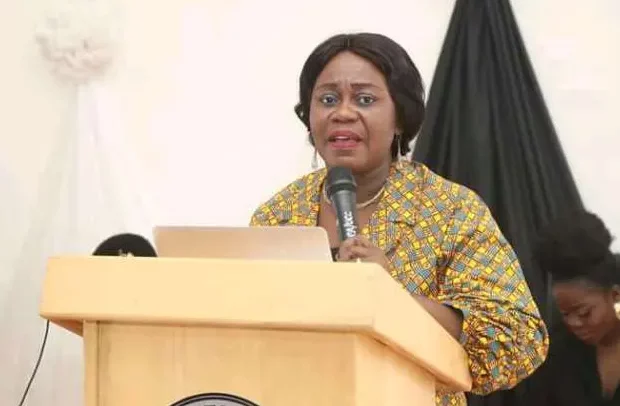Chief Justice Gertrude Torkornoo
Chief Justice Gertrude Torkornoo has submitted her response to three petitions calling for her removal from office.
The responses, which were submitted to the President and the Council of State last Friday, paves the way for the continuation of the consultation process with the Council of State in accordance with Article 146(6) of the 1992 Constitution.
President John Dramani Mahama had given the Chief Justice 10 days within which to respond to the three separate petitions calling for removal, although it is unclear what allegations have been levelled against her due to the confidentiality demanded by the process.
If the Council of State finds merit in the allegations against the Chief Justice vis-à-vis her responses, a committee would be set up by the President to inquire into the petitions and recommend to him whether the Chief Justice ought to be removed from office.
The Committee, according to Article 146(6), must consist of “two Justices of the Supreme Court, one of whom shall be appointed chairman by the President, and three other persons who are not members of the Council of State, nor members of Parliament, nor lawyers.”
Three petitions were filed earlier this year for the removal of Justice Torkornoo as Chief Justice, and the President forwarded them to the Council of State for consideration.
The Chief Justice then wrote to the President requesting copies of the three petitions seeking to remove her from office.
Justice Torkornoo, in her request to the President, had highlighted the decision to forward the petitions to the Council of State without giving her copies, to provide her an opportunity to respond to the allegations made against her.
The request to the President and copied to the Council of State, its Chairman Doe Adjaho as well as former Chief Justice Sophia Akuffo, who is also a member of the Council of State, indicates that the rules of natural justice demand that the accusations made against her in the said petitions must be brought to her attention.
It also indicates that no defendant can be subjected to a trial unless the preliminary process of receiving their response has been adhered to as provided for under Article 19, Article 23, and Article 296 of the 1992 Constitution, and all decisions in Ghana’s jurisprudence.
Just a day later, the President forwarded the petitions to the Chief Justice and gave 10 days to respond to them.
A letter signed by Calistus Mahama, Secretary to the President, indicates that the Chief Justice’s response will facilitate the consultation process initiated by the President, who has forwarded the petition to the Council of State in accordance with Article 146(6) of the 1992 Constitution.
The letter further indicates that the President has assured the Chief Justice that due process will be followed in dealing with the petitions, and she will be given a full and fair opportunity to be heard on the allegations contained in the petitions.
Again, it points out that each page of the petitions would be marked as ‘RESTRICTED’ due to the confidentiality associated with the process and the fact that the Chief Justice’s request to the President found its way into the media.
Meanwhile, the President has acknowledged receipt of the Chief Justice’s preliminary response to the petitions seeking her removal from office.
BY Gibril Abdul Razak


